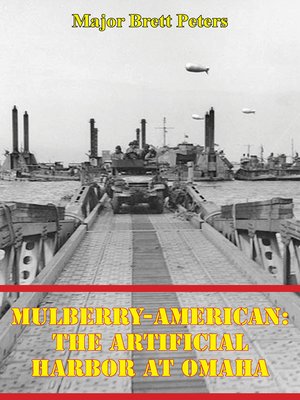
Sign up to save your library
With an OverDrive account, you can save your favorite libraries for at-a-glance information about availability. Find out more about OverDrive accounts.
Find this title in Libby, the library reading app by OverDrive.



Search for a digital library with this title
Title found at these libraries:
| Library Name | Distance |
|---|---|
| Loading... |
The Overlord operation is a widely studied episode in military history. Often overlooked is a little known U.S. operation designed to overcome logistical problems in the Overlord plan. For the first 90 days of combat the Overlord operation would not benefit from major ports to sustain the build-up and counter the German attempt to push the Allies back into the sea. The Allies planned, designed, and constructed two artificial harbours to overcome the lack of ports. The harbours were known by the code name, Mulberry. The components were towed across the English channel with the invasion fleet and constructed under enemy fire. Mulberry A, the A stood for American, was completed three days ahead of schedule and doubled the throughput of U.S. supplies over the Normandy beachhead. Mulberry A was destroyed by a summer gale after only three days of operation and subsequently abandoned. Effective beaching LSTs during the operation led many critics to conclude that Mulberry A supply operations had little effect on the Overlord operation. To the contrary, using modern assessment methods, it can be concluded that the Mulberry operation was effective and influenced the outcome of the cross channel attack.







